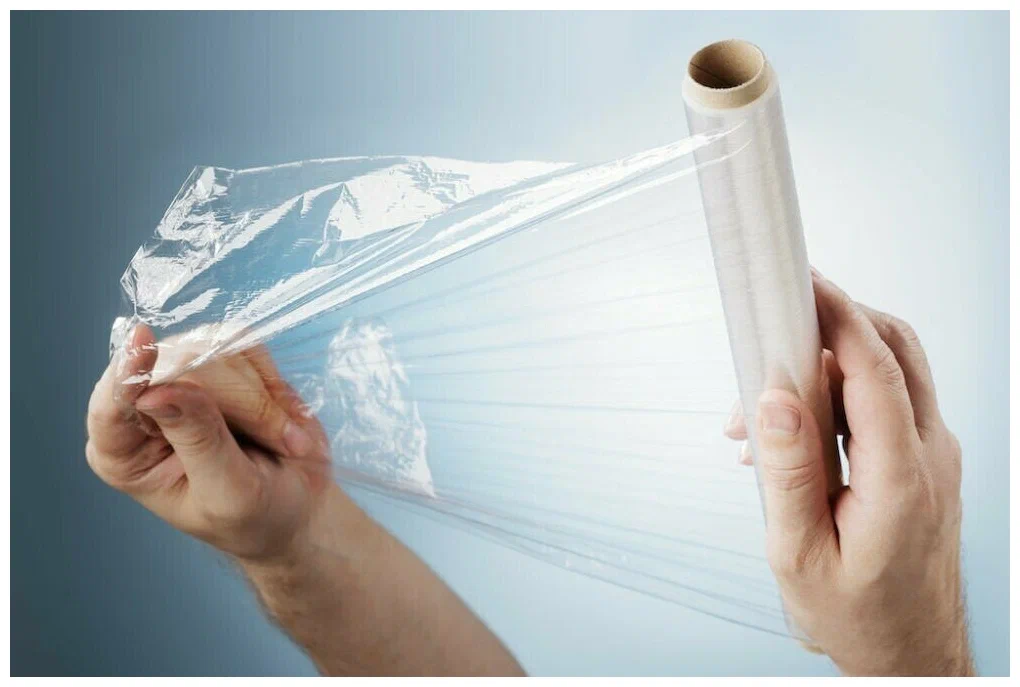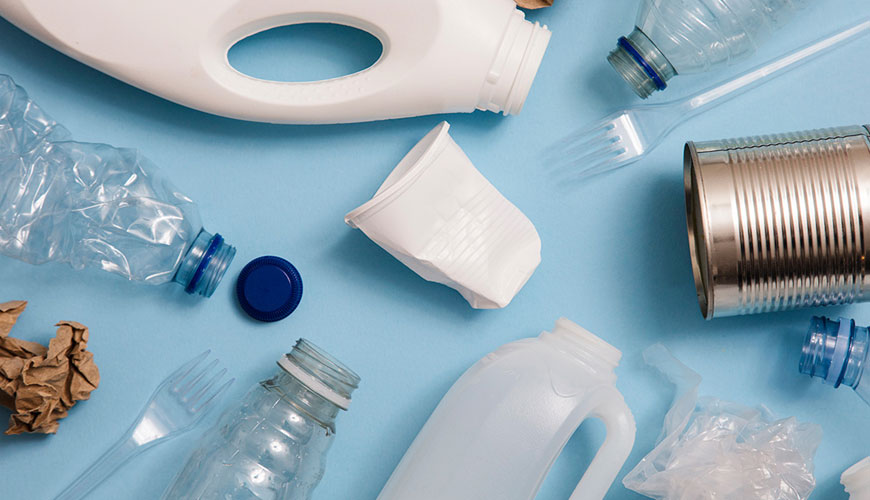Background
Rationale for Resale Agreement
The rationale for a resale agreement related to the supply of plastic packaging goods involves several key factors that justify the creation and implementation of such an agreement.
Here are some key points to consider
Establishing Clear Responsibilities
A resale agreement helps to establish clear responsibilities between the supplier (of plastic packaging goods) and the reseller (the party purchasing these goods for resale). This clarity is crucial in ensuring that both parties understand their obligations, including the terms of sale, delivery schedules, and payment methods.
Defining Payment Terms
The agreement must clearly outline payment terms to avoid disputes over payments or delays in making payments. This section should detail when payments are due, what method of payment is acceptable, and if any discounts are offered for prompt payments.
Specifying Packaging Requirements
Given the nature of plastic packaging goods, there may be specific requirements regarding how these goods must be packaged (e.g., in pallets) or labeled upon delivery to ensure they meet regulations and customer expectations. The agreement should specify these requirements.
Handling Returns or Damages
No business is immune to returns or damaged goods, so the resale agreement needs a clear section detailing how such situations will be handled. This includes procedures for filing claims, inspecting and assessing damages, and any potential adjustments in pricing due to returned or damaged goods.
Confidentiality and Data Sharing
Depending on the nature of the business, there may be a need for confidentiality regarding pricing strategies, customer data, or other sensitive information. The resale agreement should include provisions that protect both parties’ interests in this regard.
Term and Termination
The duration of the agreement (its term) should be specified clearly along with any clauses for termination, including notice periods for each party in case they decide to end their contractual relationship prematurely.
Dispute Resolution Mechanism
A well-drafted resale agreement includes a mechanism for resolving disputes that may arise during the term of the agreement or even after it has been terminated. This could involve mediation, arbitration, or specific rules for how disputes are addressed within the business community.
Jurisdiction and Applicable Law
Lastly, to ensure clarity on legal interpretations and enforcement of any contractual obligations, it’s essential to specify which jurisdiction’s law will apply in case a dispute needs judicial intervention, along with identifying an appropriate venue for any potential court proceedings.
A thorough resale agreement related to the supply of plastic packaging goods must balance the interests of both parties involved. By addressing these key points, businesses can ensure that their legal agreements provide a solid foundation for their commercial relationships, mitigating risks and promoting stability in transactions.
The Supply of Plastic Packaging Goods (Resale) agreement aims to establish a framework for resale transactions involving plastic packaging goods.
The Supply of Plastic Packaging Goods (Resale) agreement, also known as the “Supply of Plastic Packaging Goods Agreement – Resale” in English, is a crucial framework for resale transactions involving plastic packaging goods. This agreement aims to establish a standardized approach to buying and selling plastic packaging goods, which are widely used across various industries such as food, beverage, cosmetics, and more.
The agreement focuses on the resale of new plastic packaging goods that have not been previously sold or used. It covers aspects such as the scope of the agreement, definitions, obligations of the supplier and buyer, payment terms, delivery conditions, risk transfer, warranties, liability, termination, and dispute resolution procedures.
The key objectives of this Supply of Plastic Packaging Goods (Resale) agreement include
- Providing a clear understanding of the rights and obligations of both parties involved in the resale transaction.
- Establishing standardized terms and conditions for resale transactions involving plastic packaging goods.
- Facilitating smooth and efficient communication between suppliers and buyers.
- Ensuring compliance with relevant laws, regulations, and industry standards.
The agreement is beneficial to both parties as it
- Reduces the risk of misunderstandings or misinterpretations during resale transactions.
- Provides a fair and transparent framework for negotiations and price determinations.
- Enhances customer satisfaction by ensuring timely delivery, quality goods, and appropriate packaging.
- Supports sustainable business practices by promoting the reuse and recycling of plastic packaging materials.
The Supply of Plastic Packaging Goods (Resale) agreement is essential for businesses operating in industries that use significant amounts of plastic packaging materials. It serves as a reference document to help companies develop their own resale contracts, ensuring they are compliant with industry standards and relevant laws. This agreement can be customized according to the specific needs of each business and the nature of their operations.
In conclusion, the Supply of Plastic Packaging Goods (Resale) agreement is a crucial framework for resale transactions involving plastic packaging goods. Its aim is to establish a standardized approach to buying and selling these products, ensuring that both parties have a clear understanding of their rights and obligations. This agreement promotes smooth and efficient communication, ensures compliance with relevant laws and industry standards, and supports sustainable business practices.
Scope and Application
Covered Goods
The Covered Goods Supply of Plastic Packaging Goods Agreement – Resale is a complex contractual arrangement that outlines the terms and conditions for the resale of covered goods, which are typically plastic packaging materials, such as containers, bottles, caps, labels, and other related products.
This agreement is often entered into between two or more parties, including manufacturers, suppliers, distributors, and retailers, with the primary purpose of facilitating the sale and purchase of covered goods in a transparent and regulated manner.
The key components of this agreement typically include provisions for
Scope and Application
This section defines the scope and application of the agreement, specifying which types of plastic packaging goods are included within its coverage.
Seller Obligations
This section outlines the obligations of the seller (supplies of goods) with regards to quality control, labeling, packaging, pricing, payment terms, and delivery dates.
Purchaser Obligations
This section specifies the purchaser’s responsibilities regarding payments, acceptance of deliveries, product returns, storage conditions, claims procedures, and inspection requirements for goods received.
Licensing Terms
This component may require one party to grant a license or sub-license another party for the right to resell the covered goods or use associated intellectual property rights.
Pricing and Payment Conditions
This section addresses how prices will be determined, payment terms applied (e.g., advance payment, net payment), late fee structures, discounts offered, and any specific payment requirements such as cash on delivery or electronic fund transfers.
Taxation and Duty Obligations
This component outlines which party is responsible for taxes and duties related to the sale of covered goods and how these will be accounted for.
Inspection, Claims and Returns
This part describes procedures for inspecting delivered goods upon arrival, handling claims regarding defects, damaged items, or non-compliance with order specifications, as well as the process of returning goods that do not meet agreed-upon standards.
Product Liability
This section addresses how liabilities arising from products will be shared between parties in case a product causes damage or injury after being sold, including any recalls or legal consequences that may arise as a result of such incidents.
Governing Law and Jurisdiction
This component stipulates the laws applicable to disputes arising from or connected with this agreement, naming both countries involved and courts which may have jurisdiction over potential lawsuits, aiming to establish clarity in legal proceedings.
Miscellaneous Provisions
This final section contains any remaining clauses, such as confidentiality provisions regarding business information exchanged during the contract negotiations, terms for terminating or amending agreements, and representations that parties make about their authority to enter into this contract, to name a few.
The agreement covers all types of plastic packaging goods, including containers, bags, wraps, and other related products.
The Supply of Plastic Packaging Goods Agreement, commonly referred to as the Plastic Packaging Waste Regulations, is a comprehensive agreement that aims to cover all types of plastic packaging goods, including
- Containers: bottles, jugs, tubs, and any other type of container made from plastic.
- Bags: bags made from plastic, including shopping bags, garbage bags, and other types of bags.
- Wraps: wraps made from plastic, including wrapping paper, cling wrap, and any other type of wrap.
- Other related products: any other product made from plastic that is used for packaging purposes.
The agreement covers all types of plastic packaging goods, regardless of their size, shape, or material composition. The goal of the agreement is to ensure that all producers and distributors of plastic packaging goods take responsibility for the waste generated by these products.
Under the Supply of Plastic Packaging Goods Agreement, businesses are required to
- Pay an environmental tax on their plastic packaging goods.
- Recycle a certain percentage of their plastic packaging waste.
- Participate in a deposit-refund system for plastic bottles and other containers.
The agreement also provides for the development of a national recycling plan to ensure that all plastic packaging waste is recycled or disposed of properly. The plan will include targets for recycling rates, as well as measures to encourage the use of sustainable packaging materials.
The Supply of Plastic Packaging Goods Agreement has been implemented in various countries around the world and has helped to reduce the amount of plastic packaging waste sent to landfills. By covering all types of plastic packaging goods, the agreement aims to minimize the environmental impact of these products and promote a more circular economy.
Key Provisions
Definitions
The Definitions Supply of Plastic Packaging Goods Agreement – Resale is a contract that outlines the terms and conditions for the supply, resale, and distribution of plastic packaging goods. The agreement typically includes definitions of key terms such as “Plastic Packaging Goods”, “Supply”, “Resale”, and “Distribution”.
The Definitions Supply of Plastic Packaging Goods Agreement – Resale may also specify the roles and responsibilities of the supplier, distributor, and reseller, including their respective rights and obligations. For example, it may define the SUPPLIER’S OBLIGATIONS, which could include delivering goods on time, providing product specifications and documentation, and meeting quality control standards.
The agreement may also outline the RESALE TERMS, such as pricing, payment terms, packaging requirements, and labeling regulations. For instance, it may specify that the reseller is required to sell the goods at the stipulated price, with any discounts or promotions subject to prior approval from the supplier.
The agreement typically includes provisions for CONFIDENTIALITY, which could include restrictions on disclosing trade secrets, confidential information, and other proprietary data. It may also specify that the parties will not use each other’s intellectual property without permission.
In addition to these provisions, the agreement often includes a DISPUTE RESOLUTION CLAUSE, which outlines the procedure for resolving disputes arising from the agreement. This could include arbitration, mediation, or other forms of alternative dispute resolution.
The TERMINATION PROVISIONS may specify when and how the agreement can be terminated by either party, including notice periods and any outstanding obligations upon termination.
The agreement may also include GOVERNING LAW AND JURISDICTION, which could specify that the laws of a particular country or jurisdiction will apply to the agreement. This may also determine the venue for resolving disputes arising from the agreement.
In summary, the Definitions Supply of Plastic Packaging Goods Agreement – Resale is a comprehensive contract that outlines the terms and conditions for the supply, resale, and distribution of plastic packaging goods. It includes key provisions related to definitions, roles and responsibilities, resale terms, confidentiality, dispute resolution, termination, and governing law.
Resale Transaction: A transaction where the seller is not the manufacturer or original supplier of the plastic packaging good.
A resale transaction, also known as a resale sale, refers to a business-to-business (B2B) transaction where the seller is not the original manufacturer or supplier of the plastic packaging goods. This type of transaction involves an intermediary who purchases the plastic packaging goods from the original supplier and then sells them to another buyer.
In a resale transaction, the seller acts as a middleman between the manufacturer/original supplier and the final customer/end-user. The seller may purchase the plastic packaging goods in bulk or small quantities depending on their business needs, and then sell them to customers at a markup price to make a profit.
The Supply of Plastic Packaging Goods Agreement – Resale is a contract that outlines the terms and conditions of the resale transaction between the seller and the manufacturer/original supplier. This agreement typically covers issues such as
- Definition of the plastic packaging goods being resold, including their specifications, quantity, and pricing;
- Rights and obligations of both parties, including payment terms, delivery schedules, and product liability;
- Product labeling, branding, and any other requirements related to the resale of the plastic packaging goods;
- Confidentiality and non-disclosure agreements to protect trade secrets and proprietary information;
- Termination clauses and dispute resolution mechanisms in case of disagreements or breaches of contract.
The Supply of Plastic Packaging Goods Agreement – Resale serves as a legally binding document that ensures both parties are aware of their responsibilities, obligations, and rights. By outlining the terms and conditions of the resale transaction, this agreement helps prevent misunderstandings, promotes transparency, and fosters trust between the seller and the manufacturer/original supplier.
Plastic Packaging Good: A product made primarily from plastic that is used for packaging purposes.
The use of Plastic Packaging Goods has become ubiquitous in modern life, with a vast array of products being packaged in plastic containers, bottles, bags, and wraps. While there are valid concerns about the environmental impact of plastic packaging, it also offers several benefits that cannot be ignored.
One of the primary advantages of Plastic Packaging Goods is their ability to preserve food and other products by preventing contamination and spoilage. Plastic containers, for example, can be used to store perishable items like fruits and vegetables, keeping them fresh for a longer period. This helps reduce food waste and ensures that consumers have access to healthy and nutritious products.
Plastic packaging also provides convenience to consumers by making it easy to transport and store goods. For instance, plastic bottles are widely used for packaging beverages like water, soda, and juice, making them portable and easy to carry. Similarly, plastic bags and wraps are commonly used for storing food items like meat, dairy products, and bakery items.
The use of Plastic Packaging Goods has also made it possible to manufacture and transport goods over long distances without significant loss or damage. Plastic containers are lightweight, durable, and can withstand rough handling, making them ideal for shipping fragile items like electronics and glassware.
Furthermore, plastic packaging is relatively inexpensive compared to other materials like glass or metal, which makes it an attractive option for manufacturers looking to reduce costs. This has led to the widespread adoption of plastic packaging in various industries, including food, pharmaceuticals, and cosmetics.
In terms of regulations, the Supply of Plastic Packaging Goods Agreement – Resale typically involves ensuring that the packaging materials used are safe for human consumption and do not pose any environmental risks. Manufacturers must comply with relevant laws and regulations governing the use of plastic packaging, which may include restrictions on certain types of plastics or additives.
Overall, while there are valid concerns about the impact of single-use plastic, the benefits of Plastic Packaging Goods cannot be ignored. From preserving food to providing convenience and reducing costs, plastic packaging plays a vital role in modern life. However, it is essential to weigh these advantages against the potential drawbacks and strive for more sustainable solutions that minimize waste and environmental harm.
Dispute Resolution
Mechanism for Resolving Disputes
The Supply of Plastic Packaging Goods Agreement, which may also be referred to as the Plastic Packaging Directive, outlines the requirements for suppliers of plastic packaging goods. This agreement is aimed at ensuring that the supply chain complies with EU regulations on plastic packaging waste.
Disputes arising from this agreement can be resolved through various mechanisms, which include:
Mediation: The parties involved in a dispute may opt for mediation as a means of resolving their differences. This process involves the appointment of an impartial mediator who facilitates negotiations between the parties with a view to reaching a mutually acceptable solution.
Arbitration: In cases where mediation is not effective or possible, arbitration can be used to resolve disputes. Arbitration involves the appointment of one or more independent arbitrators who hear evidence and make a binding decision on the dispute.
The Agreement’s Dispute Resolution Procedure, which may be set out in Article 15, typically provides for a step-by-step approach to resolving disputes. This procedure may involve
- Initial correspondence: The parties involved in a dispute will usually engage in initial correspondence, where they state their positions and seek to resolve the matter informally.
- Escalation: If informal resolution is not possible, the parties may decide to escalate the dispute through mediation or arbitration, as described above.
- Filing a complaint: The complaining party may file a formal complaint with the relevant authority, which in this case would likely be an EU member state’s environmental agency or consumer protection body.
The Supply of Plastic Packaging Goods Agreement emphasizes the importance of fair and transparent practices throughout the supply chain. Any dispute resolution mechanisms used should be guided by these principles to ensure a just outcome for all parties involved.
The agreement provides a mechanism for resolving disputes arising from resale transactions involving plastic packaging goods.
The Supply of Plastic Packaging Goods Agreement – Resale provides a mechanism for resolving disputes arising from resale transactions involving plastic packaging goods. This agreement aims to establish a framework for the supply of plastic packaging goods, including the rights and obligations of suppliers, buyers, and other stakeholders involved in the transaction.
The agreement covers various aspects related to the supply of plastic packaging goods, such as product specifications, labeling requirements, packaging materials, and recycling or disposal practices. It also addresses issues like payment terms, delivery schedules, and liability for damages or losses resulting from non-compliance with the agreed-upon terms.
One of the key features of this agreement is its provision for dispute resolution mechanisms in case of disputes arising from resale transactions involving plastic packaging goods. This includes procedures for mediation, arbitration, or other forms of alternative dispute resolution to resolve disputes without resorting to litigation.
The Supply of Plastic Packaging Goods Agreement – Resale also establishes a framework for cooperation between suppliers and buyers to ensure compliance with relevant laws and regulations related to the supply of plastic packaging goods. This agreement promotes transparency, fairness, and responsible business practices in the industry.
Key stakeholders involved in this agreement include manufacturers, wholesalers, retailers, distributors, and other parties involved in the supply chain of plastic packaging goods. The agreement aims to foster a collaborative environment among these stakeholders, promoting mutual understanding and cooperation to resolve disputes efficiently and effectively.
The agreement is expected to contribute to the sustainable development of the industry by promoting responsible practices, reducing waste and pollution, and ensuring compliance with relevant regulations and standards related to plastic packaging goods. By providing a framework for resolving disputes in a fair and transparent manner, this agreement aims to create a positive business environment and enhance the overall performance of the supply chain.
Enforcement and Compliance
Countries Covered by the Agreement
The Supply of Plastic Packaging Goods Agreement covers several countries, primarily focused on Europe.
The agreement’s scope includes the following territories
- Albania: This Balkan country is a party to the agreement.
- Austria: Austria participates in the agreement, ensuring that plastic packaging goods comply with its regulations.
- Belgium: Belgium is another European nation covered by the agreement.
- Bulgaria: This Southeastern European country also adheres to the terms of the agreement.
- Croatia: Croatia participates in the agreement, ensuring that plastic packaging goods meet its requirements.
- Cyprus: Located in the Eastern Mediterranean, Cyprus is a party to the agreement.
- Czech Republic: The Czech Republic adheres to the terms of the agreement regarding plastic packaging goods.
- Denmark: Denmark participates in the agreement, with a focus on ensuring compliance with its regulations.
- Estonia: Estonia is another European nation covered by the agreement.
- Finland: Finland adheres to the terms of the agreement regarding plastic packaging goods.
- France: France participates in the agreement, with a focus on ensuring compliance with its regulations.
- Germany: Germany is a key player in the agreement and ensures that plastic packaging goods comply with its requirements.
- Greece: Located in Southeastern Europe, Greece also adheres to the terms of the agreement.
- Hungary: Hungary participates in the agreement, ensuring compliance with its regulations regarding plastic packaging goods.
- Iceland: Iceland is a party to the agreement and ensures that plastic packaging goods meet its requirements.
- Italy: Italy adheres to the terms of the agreement regarding plastic packaging goods.
- Lithuania: Lithuania participates in the agreement, with a focus on ensuring compliance with its regulations.
- Luxembourg: Located in Western Europe, Luxembourg is a party to the agreement.
- Malta: Malta adheres to the terms of the agreement regarding plastic packaging goods.
- Netherlands: The Netherlands participates in the agreement and ensures that plastic packaging goods comply with its requirements.
- North Macedonia: North Macedonia is a party to the agreement, ensuring compliance with its regulations regarding plastic packaging goods.
- <strongnorway< strong=””>: Norway adheres to the terms of the agreement regarding plastic packaging goods.</strongnorway<>
- Poland: Poland participates in the agreement, with a focus on ensuring compliance with its regulations.
- Portugal: Portugal is another European nation covered by the agreement.
- Romania: Located in Southeastern Europe, Romania adheres to the terms of the agreement.
- Slovakia: Slovakia participates in the agreement and ensures that plastic packaging goods meet its requirements.
- Slovenia: Slovenia is a party to the agreement, with a focus on ensuring compliance with its regulations.
- Spain: Spain adheres to the terms of the agreement regarding plastic packaging goods.
- Sweden: Sweden participates in the agreement and ensures that plastic packaging goods comply with its requirements.
The countries covered by the Supply of Plastic Packaging Goods Agreement-Resale primarily focus on Europe, ensuring a unified regulatory environment for plastic packaging goods across these territories. The specific terms and requirements of the agreement may vary between member states but share a common goal: to establish responsible and sustainable practices in the production, distribution, and use of plastic packaging materials.
List of countries: A list of countries that have ratified or acceded to the Supply of Plastic Packaging Goods (Resale) agreement.
The Supply of Plastic Packaging Goods (Resale and Manufacturers’ Sales or Delivery Schemes) Regulations 1994 is a UK legislation that aims to reduce packaging waste by implementing a series of measures to encourage manufacturers, suppliers, and retailers to re-use packaging materials. This agreement has been ratified or acceded to by several countries, primarily in the European region. Here is a list of some of the countries that have signed up for this agreement:
Bulgaria – Bulgaria acceded to the Supply of Plastic Packaging Goods (Resale) agreement on 16th June 200This was done through an EU directive which implemented the regulation in all its member states, including Bulgaria. The Bulgarian government has enforced laws and regulations to manage the re-use of packaging materials effectively.
Cyprus – Cyprus ratified the Supply of Plastic Packaging Goods (Resale) agreement on 27th July 200This country’s entry into the EU also meant that it was bound by this legislation, which aims to promote the recovery, recycling and reuse of packaging materials.
Czech Republic – The Czech Republic acceded to the Supply of Plastic Packaging Goods (Resale) agreement on 1st January 1995 as a part of its EU membership. Since then, the country has made significant progress in managing its waste, including enforcing regulations related to re-use and recycling.
Denmark – Denmark ratified the Supply of Plastic Packaging Goods (Resale) agreement on 25th April 2003, aligning itself with European legislation aimed at reducing packaging waste. The Danish government has implemented a series of measures, including economic incentives for companies that adopt sustainable packaging practices.
Estonia – Estonia acceded to the Supply of Plastic Packaging Goods (Resale) agreement on 1st May 2004 as an EU member state. Estonia has implemented the legislation by making necessary amendments to its national law and regulations, aiming at enhancing recycling and recovery processes for packaging materials.
Finland – Finland ratified the Supply of Plastic Packaging Goods (Resale) agreement on 2nd September 200As part of the European Union’s directives aimed at reducing waste and promoting sustainable practices, Finland has enforced laws related to re-use and recycling of packaging materials.
France – France acceded to the Supply of Plastic Packaging Goods (Resale) agreement on 1st January 1995 as an EU member state. Since then, France has made considerable efforts in managing its waste, including implementing regulations for the re-use of packaging materials, and encouraging recycling practices throughout the country.
Germany – Germany ratified the Supply of Plastic Packaging Goods (Resale) agreement on 16th July 2002 as an EU member state. Germany’s commitment to environmental protection has led it to implement a series of measures aimed at reducing waste generation, including those related to packaging re-use and recycling.
Greece – Greece acceded to the Supply of Plastic Packaging Goods (Resale) agreement on 1st January 1986 as an EU member state. Over the years, Greece has made significant progress in managing its waste by enforcing regulations for the recovery and recycling of packaging materials, among other practices aimed at sustainability.
Hungary – Hungary ratified the Supply of Plastic Packaging Goods (Resale) agreement on 1st May 2004 as an EU member state. This country’s accession to the European Union required it to adopt directives related to waste management, including those concerning re-use and recycling of packaging materials.
Ireland – Ireland acceded to the Supply of Plastic Packaging Goods (Resale) agreement on 30th December 199As a part of its EU membership, Ireland has made considerable efforts in reducing waste generation through regulations related to the recovery and recycling of packaging materials, among other sustainable practices.
Italy – Italy ratified the Supply of Plastic Packaging Goods (Resale) agreement on 1st January 1989 as an EU member state. Since then, Italy has implemented various measures aimed at promoting re-use and recycling of packaging materials across the country.
Latvia – Latvia acceded to the Supply of Plastic Packaging Goods (Resale) agreement on 1st May 2004 as an EU member state. This country’s entry into the European Union required it to align with EU legislation aimed at managing waste generation effectively, including through regulations related to packaging re-use and recycling.
Lithuania – Lithuania ratified the Supply of Plastic Packaging Goods (Resale) agreement on 1st May 2004 as an EU member state. Since then, Lithuania has made significant progress in implementing practices aimed at reducing packaging waste, including those related to recovery and recycling.
Luxembourg – Luxembourg acceded to the Supply of Plastic Packaging Goods (Resale) agreement on 12th December 1991 as an EU member state. This country’s commitment to environmental protection led it to adopt regulations for re-use and recycling of packaging materials among other measures aimed at sustainability.
Malta – Malta ratified the Supply of Plastic Packaging Goods (Resale) agreement on 16th July 200As a part of its EU membership, Malta has enforced laws and regulations related to waste management, including those concerning re-use and recycling of packaging materials effectively.
Netherlands – The Netherlands acceded to the Supply of Plastic Packaging Goods (Resale) agreement on 1st January 1990 as an EU member state. This country’s commitment to reducing waste generation has led it to implement various measures related to packaging re-use and recycling.
Norway – Norway ratified the Supply of Plastic Packaging Goods (Resale) agreement on 24th October 2003, aligning itself with European legislation aimed at managing waste generation effectively. Norway has enforced regulations for the recovery and recycling of packaging materials among other practices aimed at sustainability.
Poland – Poland acceded to the Supply of Plastic Packaging Goods (Resale) agreement on 1st May 2004 as an EU member state. This country’s entry into the European Union required it to adopt directives related to waste management, including those concerning re-use and recycling of packaging materials.
Portugal – Portugal ratified the Supply of Plastic Packaging Goods (Resale) agreement on 21st March 1991 as an EU member state. Since then, Portugal has implemented various measures aimed at reducing waste generation through regulations related to packaging re-use and recycling among other sustainable practices.
Slovakia – Slovakia acceded to the Supply of Plastic Packaging Goods (Resale) agreement on 1st January 1993 as a part of its EU membership. Slovakia has made significant progress in managing its waste by enforcing regulations for recovery, recycling, and re-use of packaging materials.
Slovenia – Slovenia ratified the Supply of Plastic Packaging Goods (Resale) agreement on 16th May 2004 as an EU member state. This country’s commitment to environmental protection led it to implement various measures aimed at reducing waste generation through regulations related to packaging re-use and recycling among other practices.
Spain – Spain acceded to the Supply of Plastic Packaging Goods (Resale) agreement on 1st January 1987 as an EU member state. Since then, Spain has made significant efforts in managing its waste by enforcing regulations for the recovery, recycling, and re-use of packaging materials.
Sweden – Sweden ratified the Supply of Plastic Packaging Goods (Resale) agreement on 29th May 1992, aligning itself with European legislation aimed at reducing waste generation effectively. Sweden has enforced laws related to re-use and recycling of packaging materials among other practices aimed at sustainability.
United Kingdom – The United Kingdom acceded to the Supply of Plastic Packaging Goods (Resale) agreement on 1st January 1995 as an EU member state. Since then, the UK has made significant progress in implementing regulations for re-use and recycling of packaging materials across its territory.
- Self Employed Consultant Agreement (Long) – Provider Version - August 14, 2024
- Website Privacy Policy – First Party Cookies + Analytics - August 10, 2024
- Templates For Supply Of Plastic Packaging Subject To Plastic Packaging Tax - August 9, 2024










